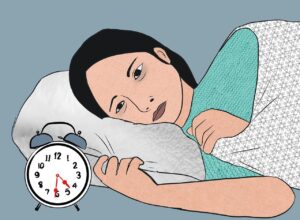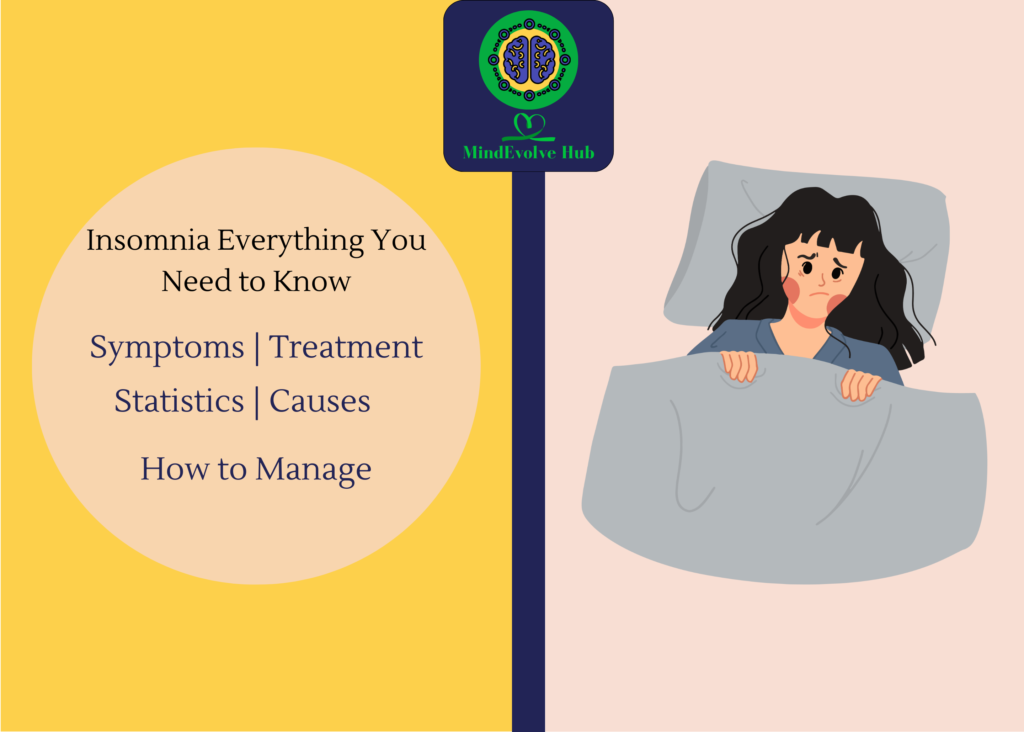
A person is said to be insomniac when he/she can’t sleep at night regularly or find it hard to say asleep.
Common Symptoms of Insomnia Include:
- Someone with insomnia will wake up way too early even if they had slept late.
- Won’t be able to sleep or stay asleep at night.
- Excessive daytime sleepiness.
- Not feeling well-rested after waking up.
Why it occurs:
- Side-effects of medication– Insomnia could be a side effect of the medicine you’re taking and it may resolve itself after your course of meditation is completed.
- Poor sleeping habits– These include
- Using electronics such as mobile before sleep could affect our ability to fall asleep as the blue light emitted from such devices interferes with it.
- Overconsumption of caffeine and nicotine can cause insomnia.
- Eating heavy meals before sleeping can cause discomfort while sleeping.
- Irregular sleeping patterns
- Stress– Emotional or Physical stress can elevate blood pressure and heart rate which is not conducive to falling asleep.
- Anxiety– Someone with anxiety will face a hard time falling asleep as anxiety can result in nightmares and racing thoughts which interfere with one’s sleep.
How to Cope:
- Avoid naps during the daytime: If you’re prone to insomnia try not to take naps during the day as it worsens insomnia.
- Maintain healthy sleeping habits: These include Avoiding blue-light-emitting devices such as mobile and laptops before going to sleep.
Our Free downloadable Sleep Hygiene Checklist will help you maintain healthy sleeping habits
- Make sure the bedroom is calm and cozy- If your bedroom is cluttered or not cozy enough it could give you a feeling of uneasiness which could interfere with your sleep.
- Practice deep breathing- Deep breathing every night before sleep will calm your nerves and lower your heart rate which will make you more relaxed and may also help you fall asleep.
- Challenge your anxious thoughts- If any thoughts are bothering you while falling asleep you can try challenging it our free Overthinking Buster Worksheet can help you with that as it’ll help you see both sides of a situation and also help you see the broader picture.
- Drinking chamomile tea- Chamomile tea has that mild relaxing effect that may make you feel more relaxed and help you fall asleep.
- Listen calming sounds and music- Listening calming music or sound may help you feel more relaxed and also help you fall asleep.
There are a few good applications you can try for listening and calming sounds like Better Sleep , Calm and Headspace
